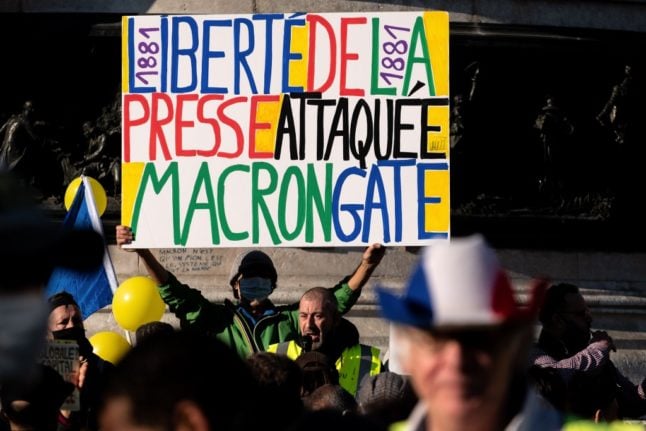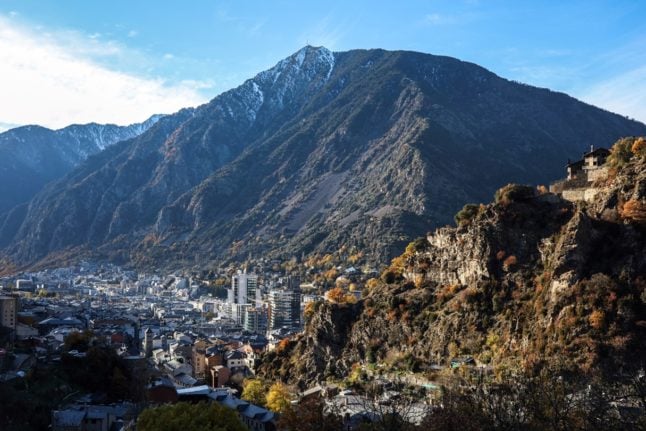The five UN special rapporteurs, who do not speak for the global body but report their findings to the Human Rights Council, said the draft law “should be comprehensively revised”.
The bill's Article 22 would allow drone surveillance for security purposes, while Article 24 would criminalise publishing images of on-duty police with the intent of harming their “physical or psychological integrity”.
READ ALSO Drones and surveillance cameras: France's new security bill explained
The French government has come under increasing pressure to scrap or revise the bill as outrage has grown over a highly publicised case of police violence.
Four French police officers were charged this week after being caught on camera beating black music producer Michel Zecler and showering him with racial abuse.
Thousands meanwhile demonstrated against the proposals at the weekend, some rallies turning violent and leaving dozens injured.
Though the UN experts welcomed a planned rewrite of Article 24, they urged the French government to undertake a comprehensive evaluation of the entire bill's compatibility with international law.
“Images of police abuse captured by the public play a vital role in oversight of public institutions, which is fundamental to the rule of law,” said the special rapporteurs, including the UN's top experts on freedom of expression, freedom of assembly, and the protection of human rights while countering terrorism.
READ ALSO The new French law that restricts photos and videos of police
“Simply rewriting Article 24 will not solve its flaws, and the provision is certainly not the only one that infringes on fundamental human rights,” they added.
On Article 22, they said that permitting drone surveillance for security and counter-terrorism would allow “widespread surveillance, in particular of demonstrators”.
“This has serious implications for the right to privacy, freedom of peaceful assembly and freedom of expression,” they said.



 Please whitelist us to continue reading.
Please whitelist us to continue reading.
Member comments